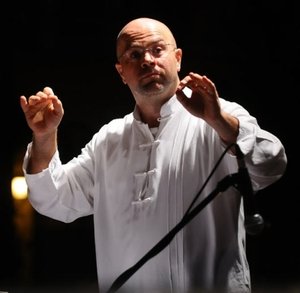- Liszt: Orpheus
- Zsolt Durkó: Burial Speech - oratorio
- László Dubrovay: Piano Concerto No.2. (Concerto romantico)
- Liszt: Tasso
János Balázs - piano, Hungarian National Choir (conductor: Somos Csaba)
Conductor: Balázs Kocsár

The core concept of this Concerto Budapest concert is the inevitable duality of life and death, this world and the afterlife. Plus something else: the connection between the present and the past, the nurturing of new art from inspiring traditions. In Liszt’s softest sounding symphonic poem, Orpheus depicts the figure of the Thracian bard; the work radiates serenity, peace and harmony and has chamber music-like orchestration. (We should not forget, however, that Orpheus journeyed into the underworld in order to retrieve his dead love, Eurydice.) In his Funeral Oration composed on the basis of the archaic phrasing of the Prayer Codex, one of the most cherished early Hungarian scripts, Zsolt Durkó created an iconic piece of the 1970s, one of the compositional masterpieces of his own oeuvre and his generation. László Dubrovay, who is himself a skilled pianist, is an admirer of the Liszt virtuosity and instrumental technique. It thus comes as no surprise that he titled his second piano concerto evoking the Romantic tradition with 21st century tools ‘Concerto romantico’, and it is similarly understandable that this piece is performed by János Balázs, a brilliant artist who regularly plays those Liszt works demanding bravura skills on the piano. Finally, we have another Liszt piece: the Tasso symphonic poem concerns the paradigmatic fate of the artist (prophetically, as it turned out, since Liszt himself shared this very fate): suffering much in life yet glorified in death.
